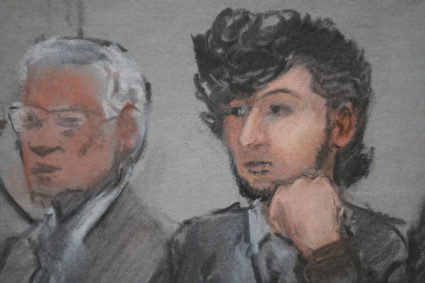
The Alvin Ailey American Dance Theater has just launched a 20-city U.S. tour under its new artistic director Alicia Graf…

WASHINGTON (AP) — The Supreme Court has reinstated the death sentence for convicted Boston Marathon bomber Dzhokhar Tsarnaev.
The justices, by a 6-3 vote Friday, agreed with the Biden administration's arguments that a federal appeals court was wrong to throw out the sentence of death a jury imposed on Tsarnaev for his role in the bombing that killed three people near the finish line of the marathon in 2013.
WATCH MORE: 2 reasons why Boston Marathon bomber case is being heard in the Supreme Court
The 1st U.S. Circuit Court of Appeals in Boston ruled in 2020 that the trial judge improperly excluded evidence that could have shown Tsarnaev was deeply influenced by his older brother, Tamerlan, and was somehow less responsible for the carnage. The appeals court also faulted the judge for not sufficiently questioning jurors about their exposure to extensive news coverage of the bombing.
"Dzhokhar Tsarnaev committed heinous crimes. The Sixth Amendment nonetheless guaranteed him a fair trial before an impartial jury. He received one," Justice Clarence Thomas wrote for the majority, made up of the court's six conservative justices.
READ MORE: Boston marathon bombing caused rise in religious hostilities, study says
In dissent for the court's three liberal justices, Justice Stephen Breyer wrote, "In my view, the Court of Appeals acted lawfully in holding that the District Court should have allowed Dzhokhar to introduce this evidence."
Breyer has called on the court to reconsider capital punishment. "I have written elsewhere about the problems inherent in a system that allows for the imposition of the death penalty … This case provides just one more example of some of those problems," he wrote.
Tsarnaev's guilt in the deaths of Lingzi Lu, a 23-year-old Boston University graduate student from China; Krystle Campbell, a 29-year-old restaurant manager from Medford, Massachusetts; and 8-year-old Martin Richard, of Boston, was not at issue, only whether he should be put to death or spend the rest of his life in prison.
Sustain our coverage of culture, arts and literature.